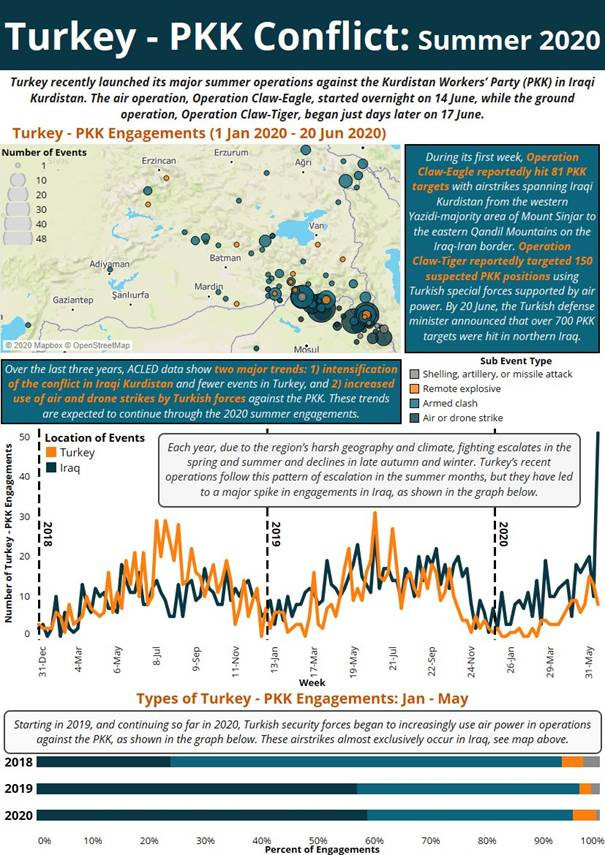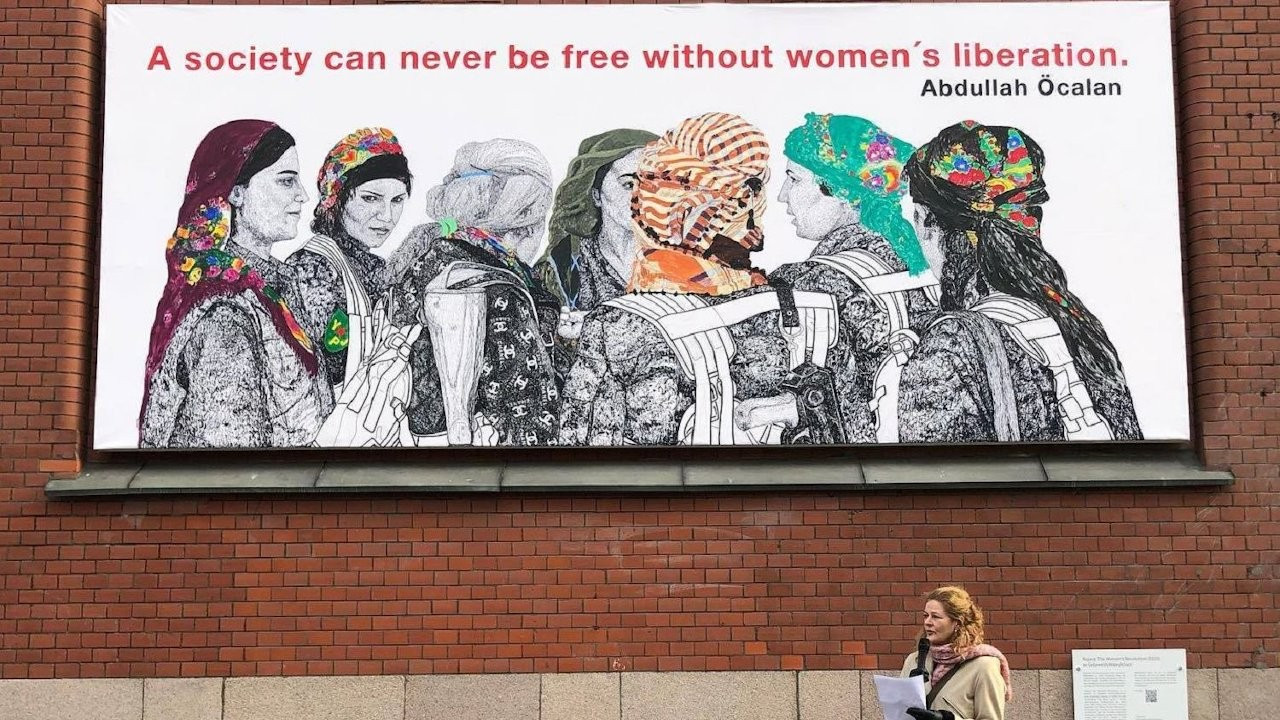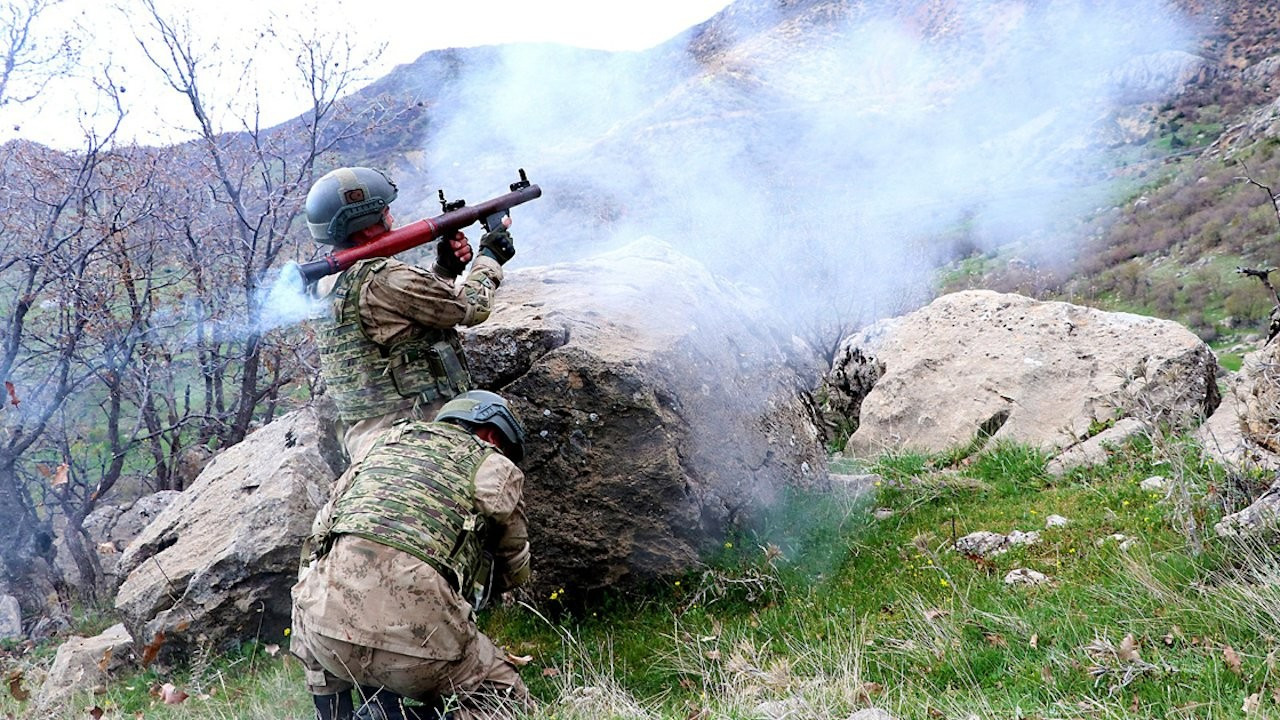A multidimensional and multinational Kurdish end game
Without a lasting political and therefore rational solution to Turkey’s relations with Kurds both within and along its borders, the precariousness of the situation in the region will continue. The gathering storm between Ankara and Baghdad to the magnitude of USD 26 billion can be the right incentive to roll out not with a thunder but with expert diplomatic dexterity a multidimensional and multinational lasting endgame to this self-generating problem.
Turkey’s security and armed forces effectively pushed clashes with the PKK, which in turn naturally means, the PKK’s armed units out of the national borders. Today, most of the (or almost all of the) clashes with the PKK occur within neighboring Iraq. Furthermore, the area in which these military operations happen may be depicted as a grey area within a grey area. In other words, the PKK controlled fall back and logistic support zone sprawling along the mountainous Turkey-Iraq-Iran area.
Those anti-PKK military operations can be summed up as twofold. First, clear and hold operations that are aimed to create a buffer zone between Turkey and Iraq like the one extending in Syria from Afrin to the east of Euphrates and attempts at drawing an iron curtain between Qandil and Rojava by establishing forward operational bases to the west of Mosul and in Shengal. Second, chirurgical strikes conducted to eliminate high-value targets from PKK nomenklatura. Other airstrikes are aimed at softening the target and preventing PKK from sneaking back to the previously lost territory.
Human intelligence activities on the ground and closer cooperation with the KRG or directly with the KDP to be more realistic seem to have been intensified. National Defense Minister Gen. Akar’s recent visit to Erbil is telling for that matter although no concrete outcome has yet been shared with the public. PUK’s stance is towards the PKK, and even towards three capitals, namely Ankara, Baghdad and Tehran is more nuanced. As with the KDP and intra-Barzani power struggle, there is a deep running intra-PUK tension, again namely between Lahur and Bafel Talabanis.

All in all, with the U.S. during the Trump presidency as Mr. Trump preferred to turn the other way and whistle at critical moments and with both Baghdad and Erbil, Turkey’s muscular approach seems to have paid off well till now. Even for the EU, in whose member countries there exist a well-rooted PKK-leaning Kurdish diaspora and organizations affiliated with the PKK, skirmishes along the Turkey-Iraq border do not appear to have an eye-brow raising effect. The new Biden administration’s approach, and within it especially ex-CENTCOM now Secretary of Defense Gen. Austin’s and ex-fight against the ISIL envoy now White House’s MENA policy coordinator McGurk’s proposed policies are yet to materialize at this very early stage.
Trying to read the tea leaves merely based on these developments on the ground lead one to ponder that any peace process or dialogue with the PKK is out the door for the foreseeable future. On the other hand, timid denominations of the current foreign policy as muscular, assertive, defiant, go-it-alone etc. translates as anti-democratic and suffocating internally. For the purposes of this piece, I will try and not dwell into that territory beyond citing the obvious: Half of the global 35 to 40 million strong Kurdish population half are citizens of the Republic of Turkey, whichever way you cut it and among those at least but probably more are not supporters neither of violence nor of the PKK per se but identify themselves with that general political line.
One thorn in this otherwise idyllic picture looking in through the rose-colored glasses of Ankara, is that Iraq would have asked the ICC's International Court of Arbitration (in Paris) for USD 26 billion in damages for the 2014-2017 period only. The case dating back to 2014 is based on alleged violations by Turkey of the Iraq-Turkey Pipeline (ITP) treaty by allowing the KRG to by-pass that treaty and the pipeline to export its oil directly to world markets via Ceyhan port in Mediterranean Turkey. This ongoing issue can either be a stumbling block or an opportunity for diplomacy to take precedence over the military depending on the way one looks at it.
If the judge arbiters in Paris took so long in concluding their deliberations, they apparently would have realized that the case at hand is of utmost political nature. With Hameney’s Iran on one side and Assad’s Syria on the other, the U.S. would ill afford such an expensive spat between Baghdad and Ankara. What is more, if Baghdad pushes forward more encouraged behind the scenes by Iran, the already fragile situation in such a disruptive and unexpected way that it can deliberately blow out of hand.
The Biden administration, if serious about putting the mess left behind by Ambassador Jeffrey back in order, will have to take a long and hard look at how to facilitate peace between Turkey and the PKK. An all-encompassing oil deal can be the keystone of that possible endgame. It is neither in Washington DC’s nor in Ankara’s interest to see Assad’s regime emerging even more single-handedly empowered from the bloody Syrian war. To keep the Autonomous Administration of North and East Syria (AANES) floating, it's globally (both gravity and volume wise) negligible but vital for Damascus oil reserves can only be monetized through the KRG.
Turkish Energy Company (TEC) was created apart from Turkish Petroleum International Company (TPIC) to become Turkey’s SOCAR, Petronas or Petrobras in order to navigate exactly this kind of treacherous legal waters albeit it remained a paper tiger with no imminent signs for revival at all. Perhaps, LSE listed Genel Energy company with its current partnership structure shared in between three major Turkish holders Bilgin Energy with %22, Mehmet Emin Karamehmet with %15.8, İş Bankası with %6,5 (and even perhaps Azerbaidjan’s Hassan Gozal with %16) of stakes can turn out to be that critical joint to bring in all these different moving parts.
Erdoğan’s Turkey pretends (or asserts, according to one’s political leaning) to be a regional heavyweight. It puts its money where its money is when it comes to muscularly shimmy its way in Syria and in Iraq against the PKK and/or PKK-affiliated YPG/YPJ. Yet, its’ main national narrative still and contradictorily remains that the Kurdish issue through PKK is the main disruptive challenge to its defiance, the way a glass jawed heavyweight champion, for example, reminiscent of late great Floyd Patterson, would go down with a single punch. Which is it, then?
Oil prices globally are going down and even oil itself as a valuable commodity can be carted out definitely in our lifetimes. Ergo, the only interested buyer to such an operation as Genel would need to be a state-owned entity for political considerations. More than a wink and a nod from capitals would be needed to kick start a chain reaction of acquisitions spree. The Biden administration, with key experienced players like Gen. Austin and Mr. McGurk would have to work up quite a sweat to align this kind of stars.
Without a lasting political and therefore rational solution to Turkey’s relations with Kurds both within and along its borders, the precariousness of the situation in the region will continue. The gathering storm between Ankara and Baghdad to the magnitude of USD 26 billion can be the right incentive to roll out not with a thunder but with expert diplomatic dexterity a multidimensional and multinational lasting endgame to this self-generating problem. In the old days, this was called constructive ambiguity and mutual dependence, then creative chaos took hold instead.


 Painting with Öcalan's quote, Kurdish militants in Oslo angers TurkeyDiplomacy
Painting with Öcalan's quote, Kurdish militants in Oslo angers TurkeyDiplomacy Over 30,400 PKK militants either killed, wounded or captured since 2015: Turkish Defense MinisterPolitics
Over 30,400 PKK militants either killed, wounded or captured since 2015: Turkish Defense MinisterPolitics